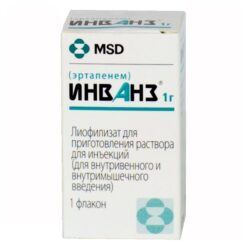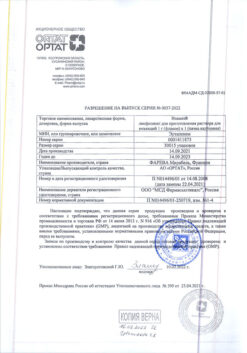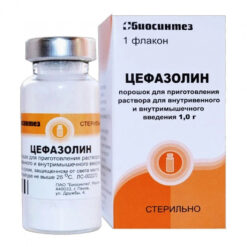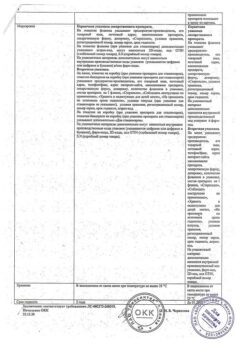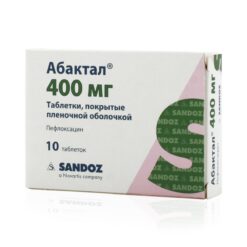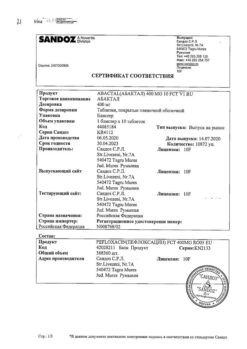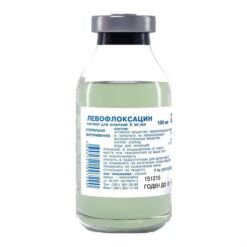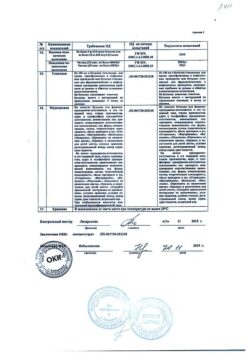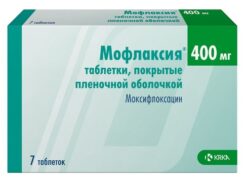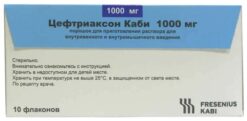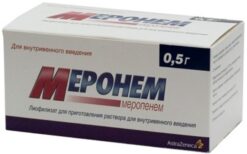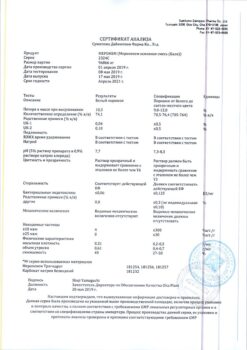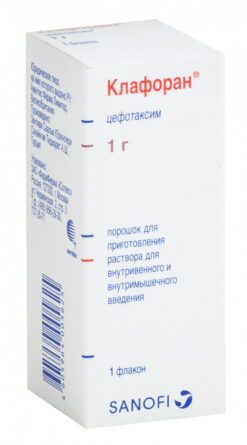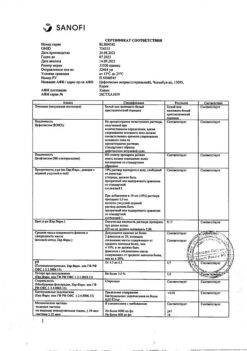No products in the cart.
Maviret 100 mg+40 mg, 84 pcs.
€1.00
Out of stock
(E-mail when Stock is available)
Description
Maviret is a combination of two pangenotypic direct-acting, fixed-dose antivirals, glecaprevir (NS3/4A protease inhibitor) and pibrentasvir (NS5A inhibitor), which target different stages of the hepatitis C virus life cycle.
Glecaprevir
Glecaprevir is an inhibitor of the hepatitis C virus (HCV) NS3/4A protease which is essential for proteolytic cleavage of the hepatitis C virus encoding polyprotein (for further conversion into mature forms of NS3, NS4A, NS4B, NS5A, and NS5B proteins) and is important for viral replication. In biochemical studies, glecaprevir inhibited the proteolytic activity of recombinant hepatitis C virus NS3/4A proteases from clinical virus isolates of genotypes la, lb, 2a, 2b, za, 4a. 5a and 6a with IC50 values from 3.5 to 11.3 nM.
Pibrentasvir
Pibrentasvir is a pangenotype inhibitor of the hepatitis C virus NS5A protein, which is essential for viral RNA replication and virion assembly. The mechanism of action of pibrentasvir has been studied in studies of antiviral activity on cell cultures and in studies to determine the nature of drug resistance.
Antiviral activity
The EU5o values of glecapsvir and pibrentasvir against full-length or hybrid replicons. encoding NS3 or NS5A from laboratory strains.
The evaluation of the combination of glecaprsvir and pibrentasvir on HCV genotype 1 replicon cell cultures showed no evidence of antagonistic antiviral activity. Resistance
In cell culture
A phenotypic analysis of amino acid substitutions in NS3 or NS5A proteins. isolated in cell culture or significant for the inhibitor class was performed for replicons.
The substitutions significant for the HCV protease inhibitor class at positions 36, 43, 54. 55, 56, 155, 166 or 170 in the NS3 protein have no effect on the activity of glecapsvir. For genotype 2, amino acid substitutions in NS3 at position 168 have no effect, while some substitutions at position 168 cause a decrease in sensitivity to glecaprevir by up to 55-fold (genotypes 1, 3, 4) or a decrease in sensitivity by more than 100-fold (genotype 6). Some substitutions at position 156 cause a decrease in sensitivity to glecaprevir by more than 100 times (genotypes 1-4). Amino acid substitutions at position 80 do not decrease sensitivity to glecaprevir except for the Q80R substitution in genotype Z, which decreases sensitivity to glecaprevir 21-fold.
Single substitutions important for the NS5A protease inhibitor class at positions 24, 28, 30, 31, 58. 92 or 93 in NS5A in genotypes 1-6 have no effect on the activity of pibrentasvir. For example, in genotype Z, substitutions in amino acids A30K or Y93H have no effect on piBrentasvir activity. Some combinations of substitutions in genotypes 1a and Za (including A30K+Y93H in genotype Za) show reduced sensitivity to pibrentasvir. Use in children
There are no data on the use of the drug in children.
The use in elderly patients
The clinical trials of Maviret included 328 patients aged 65 years and older (13.8% of the total number of patients). The frequency of achieving a virologic response in the group of patients aged > 65 years was similar to that in patients aged < 65 years.
Indications
Indications
Treatment of chronic hepatitis C in adults.
Pharmacological effect
Pharmacological effect
Maviret is a fixed-dose combination of two pangenotypic direct-acting antiviral agents, glecaprsvir (NS3/4A protease inhibitor) and pibrentasvir (NS5A inhibitor), targeting different stages of the hepatitis C virus life cycle.
Glecaprevir
Glecaprevir is an inhibitor of hepatitis C virus (HCV) NS3/4A protease. which is necessary for the proteolytic cleavage of the hepatitis C virus-encoding polyprotein (for further conversion into the mature forms of the proteins NS3, NS4A, NS4B, NS5A, and NS5B) and is essential for viral replication. In biochemical studies, glecaprevir inhibited the proteolytic activity of recombinant hepatitis C virus proteases NS3/4A from clinical isolates of the virus genotypes la, lb, 2a, 2b, 3a, 4a. 5a and 6a with IC50 values ranging from 3.5 to 11.3 nM.
Pibrentasvir
Pibrentasvir is a pangenotypic inhibitor of the hepatitis C virus NS5A protein, which is required for viral RNA replication and virion assembly. The mechanism of action of pibrentasvir has been studied through antiviral activity studies in cell cultures and drug resistance studies.
Antiviral activity
EC5o values of glecaprsvir and pibrentasvir against full-length or hybrid replicons. encoding NS3 or NS5A from laboratory strains.
Evaluation of the combination of glecaprsvir and pibrentasvir on replicon cell cultures of HCV genotype 1 did not reveal any signs of antagonism of antiviral activity. Resistance
In cell culture
For replicons, phenotypic analysis of amino acid substitutions in the NS3 or NS5A proteins was carried out. isolated in cell culture or class-relevant inhibitors.
Substitutions significant for the HCV protease inhibitor class at positions 36, 43, 54, 55, 56, 155, 166 or 170 in the NS3 protein do not affect the activity of glecaprsvir. For genotype 2, amino acid substitutions in NS3 at position 168 have no effect, while some substitutions at position 168 cause up to a 55-fold reduction in sensitivity to glecaprevir (genotypes 1, 3, 4) or a more than 100-fold reduction in sensitivity (genotype 6). Some substitutions at position 156 cause a more than 100-fold decrease in sensitivity to glecaprevir (genotypes 1-4). Amino acid substitutions at position 80 do not reduce sensitivity to glecaprevir, except for the Q80R substitution in genotype 3a, which reduces sensitivity to glecaprevir by 21 times.
Single substitutions important for the NS5A class of protease inhibitors at positions 24, 28, 30, 31, 58, 92 or 93 in NS5A in genotypes 1-6 have no effect on the activity of pibrentasvir. For example, in genotype A, substitutions in amino acids A30K or Y93H do not affect the activity of pibrentasvir. Some combinations of substitutions in genotypes 1a and 3a (including A30K+Y93H in genotype 3a) demonstrate reduced sensitivity to pibrentasvir. Use in children
There is no data on the use of the drug in children.
Use in elderly patients
Clinical studies of the drug Maviret included 328 patients aged 65 years and older (13.8% of the total number of patients). Virological response rates in patients aged >65 years were similar to those in patients aged <65 years.
Special instructions
Special instructions
Reactivation of viral hepatitis B
Reactivation of the hepatitis B virus, in some cases fatal, has been reported during treatment with direct acting antivirals. All patients should be screened for HBV before starting therapy. Patients with HBV/HCV coinfection are at risk for HBV reactivation. therefore, they should be monitored and managed in accordance with current recommendations.
Patients after liver transplantation
The safety and effectiveness of Maviret in patients who have undergone liver transplantation have not been evaluated. Treatment with Maviret in accordance with the recommended route of administration and dosage should be based on an assessment of the potential benefits and risks for each individual patient.
Liver dysfunction
Maviret is not recommended for use in patients with moderate hepatic impairment (Child-Pugh class B) and is contraindicated in patients with severe hepatic impairment (Child-Pugh class C).
Patients who have not responded to a previous regimen containing NS5A and/or NS3/4A inhibitors
The potential for the development of resistance to glecaprevir/pibrentasvir was studied in patients infected with genotype 1 virus and a limited number of patients infected with genotype 4 virus who did not respond to a previous treatment regimen. As expected, the risk of treatment failure was higher in patients with prior therapy involving both classes of drugs (NS5A and NS3/4A inhibitors). A methodology for predicting treatment failure based on baseline data on treatment resistance has not been defined. Development of resistance to both classes of drugs was the main finding in patients who did not respond to glecaprevir/pibrentasvir therapy. There are no data on re-treatment of patients infected with virus genotypes 2, 3, 5 and 6. The use of Maviret is not recommended for re-treatment of patients previously treated with NS3/4A and/or NS5A inhibitors.
Impact on the ability to drive vehicles and machinery
The drug Maviret has no or insignificant effect on the ability to drive vehicles and operate machinery.
Active ingredient
Active ingredient
Glecaprevir, Pibrentasvir
Composition
Composition
Active ingredients: glecaprevir 100.0 mg, pibrentasvir 40.0 mg
Excipients: copovidone K 28, D-alpha tocopherol macrogol succinate, colloidal silicon dioxide, croscarmellose sodium. sodium stearyl fumarate, propylene glycol monocaprylate type II; film coating Opadryu II pink (Opadryu II 32F240023)’. hypromellose 2910. lactose monohydrate, titanium dioxide, macrogol 3350, red iron oxide.
Contraindications
Contraindications
• Hypersensitivity to any active ingredient of the drug or to
any of the excipients.
• Patients with severe hepatic impairment (Child-Pugh class C), see
sections “Method of administration and dosage” and “Pharmacokinetics”.
• Concomitant use with the following drugs: atazanavir. atorvastatin,
simvastatin, dabigatran etexilate, drugs containing estradiol, strong inducers of P-glycoprotein and CYP3A, for example, rifampicin, carbamazepine, preparations of St. John’s wort Hypericum perjoratum, phenobarbital, phenytoin, primidone (see section “Interaction with other drugs”).
• Children under 18 years of age.
• Lactase deficiency, lactose deficiency, glucose-galactose malabsorption.
WITH CAUTION
Maviret is not recommended for use in combination with omeprazole (40 mg), darunavir/ritonavir, efavirenz, lopinavir/ritonavir, lovastatin, cyclosporine (>100 mg per day).
Maviret should be used with caution with the following drugs: digoxin, pravastatin, rosuvastatin, fluvastatin, pitavastatin, tacrolimus.
Side Effects
Side Effects
Security Profile Summary
The safety of Maviret in patients with compensated liver function (with or without cirrhosis) was assessed from phase 2 and 3 studies involving approximately 2,300 patients infected with HCV genotypes 1, 2, 3, 4, 5 or 6 who received Maviret for 8, 12 or 16 weeks.
The most common adverse reactions (incidence > 10%) were headaches and fatigue. Less than 0.1% of patients treated with Maviret experienced serious adverse reactions (transient ischemic attack). The proportion of patients who finally stopped receiving treatment with Maviret due to the development of adverse reactions was 0.1%. The type and severity of adverse reactions in patients with cirrhosis were comparable to those in patients without cirrhosis.
Table of adverse reactions
The following adverse reactions have been reported in patients treated with Maviret. Below is a list of adverse reactions grouped according to the class of organ systems and frequency of occurrence. The frequency of occurrence is defined as follows: very common (> 1/10), common (> 1/100 to 1/1,000 to 1/10,000 to < 1/1,000) and very rare (< 1/10,000).
Adverse reactions observed while taking Maviret:
Nervous system disorders:
– Frequency of development – Very common
– Adverse reactions – Headache
Gastrointestinal disorders:
– Frequency of development – Often
– Adverse reactions – Nausea, diarrhea
General disorders and reactions at the injection site:
– Frequency of development – Often
– Adverse reactions – Asthenia
Description of selected adverse reactions
Adverse reactions in patients with severe renal impairment, including patients on dialysis
The safety of Maviret in patients with chronic kidney disease (stage 4 or stage 5, including patients on dialysis) and chronic infection with hepatitis C virus genotypes 1, 2, 3, 4, 5 or 6 with compensated liver failure (with or without cirrhosis) was assessed in 104 patients. The most common adverse reactions in patients with severe renal impairment were pruritus (17%) and fatigue (12%).
Safety assessment in patients with HCV/HIV-1 coinfection
The overall safety profile in patients with HCV/HIV-1 coinfection was comparable to that in patients with HCV monoinfection.
Increased serum bilirubin levels
In 1.3% of patients, total bilirubin levels increased to at least 2 times the upper limit of normal, which was associated with glecaprevir-mediated inhibition of bilirubin transport proteins and bilirubin metabolism. The increase in bilirubin levels was asymptomatic, temporary, and usually occurred early in treatment. The increase in bilirubin levels occurred primarily due to the indirect fraction and was not associated with an increase in ALT levels. Direct hyperbilirubinemia was observed in 0.3% of patients.
Interaction
Interaction
Possible influence of Maviret on other drugs
Glecaprevir and pibrentasvir are inhibitors of P-glycoprotein (P-GP), breast cancer resistance protein (BCRP), and organic anion transport polypeptide (OATP) 1B1/3.
Concomitant use with Maviret may lead to increased plasma concentrations of drugs that are substrates of P-glycoprotein (dabigatran etexilate, digoxin), BCRP (rosuvastatin) or OATP1B1/3 (atorvastatin, lovastatin, pravastatin, rosuvastatin, simvastatin). For other P-glycoprotein substrates. BCRP and OATP1B1/3 may require dose adjustment.
Glecaprevir and pibrentasvir are weak inhibitors of cytochrome P450 CYP3A and uridine glucuronosyltransferase (UGT) 1A1 in vivo. There was no clinically significant increase in systemic exposure for sensitive CYP3A substrates (midazolam, felodipine) and UGT1AI (ralgegravir) when co-administered with Maviret.
Glecaprsvir and pibrentasvir inhibit the bile acid export pump (BSEP) in vitro.
No clinically significant inhibition of CYP1A2, CYP2C9, CYP2C19, CYP2D6 substrates is expected. UGT1A6, UGT1A9. UGT1A4, UGT2B7, OCTI, OCT2, OAT1, OATZ, MATE1 and MATE2K.
Patients receiving vitamin K antagonists
During treatment with Maviret, changes in liver function may occur, so careful monitoring of the international normalized ratio (INR) is recommended. Potential effects of other medicinal products on Maviret
Concomitant use with strong P-glycoprotein/SURZA inducers
Drugs that are strong inducers of P-glycoprotein and CYP3A (rifampicin, carbamazepine, St. John’s wort (Hypericum perforatum), phenobarbital, phenytoin and primidone) can cause a significant decrease in the concentration of glecaprsvir and pibrentasvir in the blood plasma, leading to a decrease in the therapeutic effect of Maviret and loss of virological response. The use of such drugs simultaneously with Maviret is contraindicated.
The use of Maviret simultaneously with drugs that are moderate inducers of P-glycoprotein and CYP3A may cause a decrease in the concentration of glecaprsvir and pibrentasvir in the blood plasma (oxcarbazepine, eslicarbazepine, lumacaftor, crizotinib). Concomitant use with moderate inducers is not recommended.
Glecaprevir and pibrentasvir are substrates of the efflux transporters P-glycoprotein and/or BCRP. Glecaprevir is also a substrate of the hepatic uptake transporters OATP1B1/3. The use of Maviret simultaneously with drugs that are inhibitors of P-glycoprotein and BCRP (cyclosporine, cobicistat, dronedarone, itraconazole, ketoconazole, ritonavir) may slow down the elimination of glecaprsvir and pibrentasvir and may cause an increase in the exposure of antiviral drugs in the blood plasma. Drugs that are OATP1B1/3 inhibitors (elvitegravir, cyclosporine, darunavir, loinavir) may cause an increase in systemic concentrations of glecaprsvir.
Overdose
Overdose
The highest documented dose taken by healthy volunteers was 1200 mg once daily for 7 days for glecaprsvir and 600 mg once daily for 10 days for pibrentasvir. An asymptomatic increase in serum ALT (>5 times the ULN) was observed in 1 of 70 healthy volunteers after receiving multiple doses of glecaprsvir (700 mg or 800 mg) once daily for >7 days. In case of overdose, it is necessary to monitor the patient’s condition for signs of toxicity. Appropriate symptomatic treatment should be started immediately. Hemodialysis contributes to a small extent to the excretion of glecaprsvir and pibrentasvir from the body.
Storage conditions
Storage conditions
At a temperature not exceeding 25 °C.
Keep out of the reach of children.
Shelf life
Shelf life
2 years. Do not use after the expiration date stated on the package.
Manufacturer
Manufacturer
Fournier Laboratories Ireland Limited, Ireland
Additional information
| Shelf life | 2 years. Do not use after the expiration date printed on the package. |
|---|---|
| Conditions of storage | To a temperature not exceeding 25 °C. Store out of the reach of children. |
| Manufacturer | Fournier Laboratories Ireland Limited, Ireland |
| Medication form | pills |
| Brand | Fournier Laboratories Ireland Limited |
Related products
Buy Maviret 100 mg+40 mg, 84 pcs. with delivery to USA, UK, Europe and over 120 other countries.


